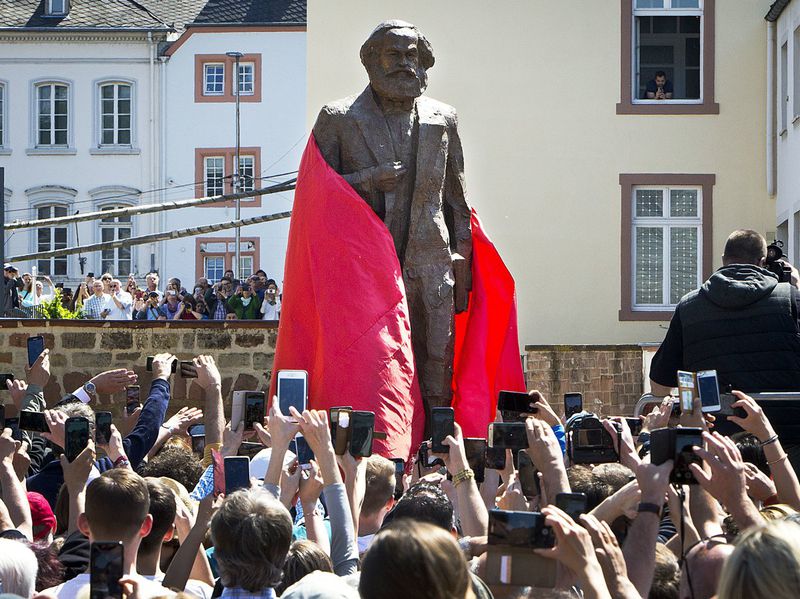Hegel was the first to state correctly the relation between freedom and necessity. To him, freedom is the insight into necessity {die Einsicht in die Notwendigheit}. “Necessity is blind only in so far as it is not understood [begriffen].” Freedom does not consist in any dreamt-of independence from natural laws, but in the knowledge of these laws, and in the possibility this gives of systematically making them work towards definite ends. This holds good in relation both to the laws of external nature and to those which govern the bodily and mental existence of men themselves — two classes of laws which we can separate from each other at most only in thought but not in reality. Freedom of the will therefore means nothing but the capacity to make decisions with knowledge of the subject.
Therefore the freer a man’s judgment is in relation to a definite question, the greater is the necessity with which the content of this judgment will be determined; while the uncertainty, founded on ignorance, which seems to make an arbitrary choice among many different and conflicting possible decisions, shows precisely by this that it is not free, that it is controlled by the very object it should itself control. Freedom therefore consists in the control over ourselves and over external nature, a control founded on knowledge of natural necessity; it is therefore necessarily a product of historical development.
The first men who separated themselves from the animal kingdom were in all essentials as unfree as the animals themselves, but each step forward in the field of culture was a step towards freedom. On the threshold of human history stands the discovery that mechanical motion can be transformed into heat: the production of fire by friction; at the close of the development so far gone through stands the discovery that heat can be transformed into mechanical motion: the steam-engine.
And, in spite of the gigantic liberating revolution in the social world which the steam-engine is carrying through, and which is not yet half completed, it is beyond all doubt that the generation of fire by friction has had an even greater effect on the liberation of mankind. For the generation of fire by friction gave man for the first time control over one of the forces of nature, and thereby separated him for ever from the animal kingdom. The steam-engine will never bring about such a mighty leap forward in human development, however important it may seem in our eyes as representing all those immense productive forces dependent on it — forces which alone make possible a state of society in which there are no longer class distinctions or anxiety over the means of subsistence for the individual, and in which for the first time there can be talk of real human freedom, of an existence in harmony with the laws of nature that have become known. But how young the whole of human history still is, and how ridiculous it would be to attempt to ascribe any absolute validity to our present views, is evident from the simple fact that all past history can be characterised as the history of the epoch from the practical discovery of the transformation of mechanical motion into heat up to that of the transformation of heat into mechanical motion. [….]
[Ancient history will] remain a historical epoch of the greatest interest for all future generations, because it forms the basis of all subsequent higher development, because it has for its starting-point the moulding of man from the animal kingdom, and for its content the overcoming of obstacles such as will never again confront associated mankind of the future. And secondly, that the close of this [so-called] “hoary antiquity” — in contrast to which the future periods of history, which will no longer be kept back by these difficulties and obstacles, hold the promise of quite other scientific, technical and social achievements — is in any case a very strange moment to choose to lay down the law for these thousands of years that are to come, in the form of final and ultimate truths, immutable truths and deep-rooted conceptions discovered on the basis of the intellectually immature childhood of our so extremely “backward” and “retrogressive” century. Only a Richard Wagner in philosophy — but without Wagner’s talents — could fail to see that all the depreciatory epithets slung at previous historical development remain sticking also on what is claimed to be its final outcome — the so-called philosophy of reality.
One of the most significant morsels of the new deep-rooted science {219} is the section on individualisation and increasing the value of life. In this section oracular commonplaces bubble up and gush forth in an irresistible torrent….
Frederick Engles
Anti-Dühring; Part I: Philosophy

